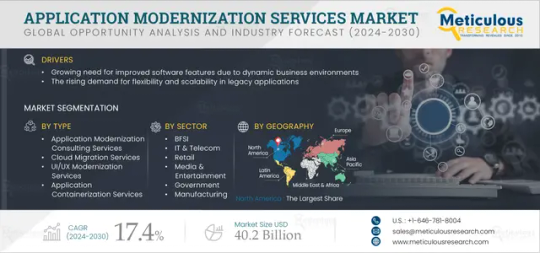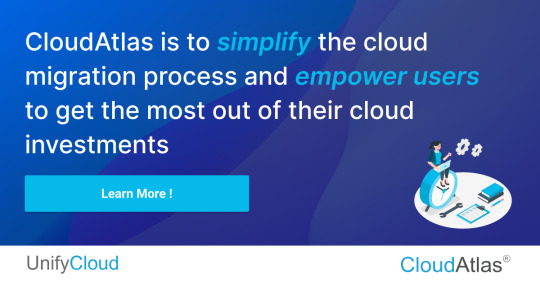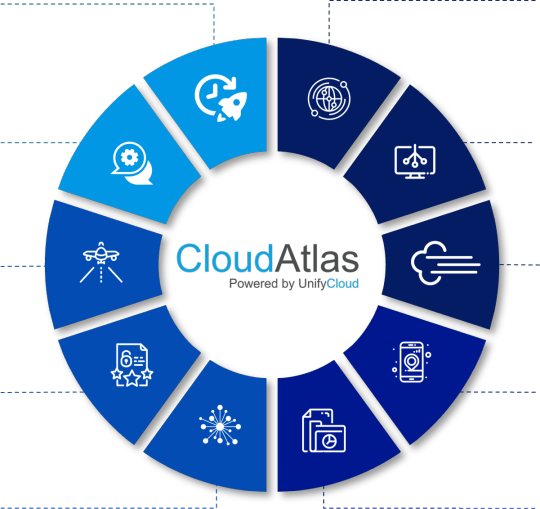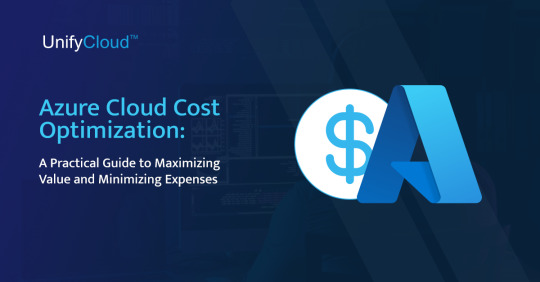#Cloud Modernization
Explore tagged Tumblr posts
Text

Say goodbye to outdated infrastructure. With Astute’s Oracle IT Estate Modernization, you can simplify management, reduce costs and drive innovation. We help you migrate securely, enable AI/ML and automate your operations—faster. Let Astute modernize your IT estate the smart way.
#cloud modernization#legacy system upgrade#oracle cloud solutions#IT transformation#enterprise cloud migration
0 notes
Text
AWS Cloud Services: A Critical Enabler in the Healthcare Industry
The healthcare industry has undergone a digital transformation, driven by the need for agility, patient-centric services, and operational efficiency. Central to this evolution is the growing reliance on AWS cloud services. With its suite of AWS-managed services and scalable infrastructure, Amazon Web Services (AWS) is helping healthcare organizations overcome traditional IT limitations while ensuring compliance, data security, and innovation.

The Shift Toward Cloud in Healthcare
Healthcare providers, payers, and life sciences organizations are turning to cloud computing to modernize their systems, manage electronic health records (EHRs), and unlock the value of big data and artificial intelligence (AI). However, transitioning to the cloud involves complex challenges—from regulatory compliance to managing sensitive patient data. This is where AWS cloud managed services offer a significant advantage.
AWS provides a robust, secure, and compliant environment that is well-suited for hosting healthcare applications. Services like Amazon EC2, Amazon S3, and Amazon RDS offer scalable compute and storage solutions, while more specialized offerings like AWS HealthLake and Amazon Comprehend Medical provide tools tailored to the healthcare sector.
Data Security and Compliance
Security and regulatory compliance are top priorities in healthcare. AWS cloud services are designed with built-in security frameworks that support compliance with HIPAA, HITRUST, GDPR, and other healthcare-specific regulations. AWS provides encryption at rest and in transit, fine-grained access controls through IAM (Identity and Access Management), and detailed audit logs via AWS CloudTrail.
AWS managed services further simplify compliance by automating infrastructure management tasks such as patching, backups, and monitoring. This allows healthcare IT teams to focus on higher-value activities while ensuring that their infrastructure remains secure and compliant.
Enhancing Patient Care with AWS Cloud Services
AWS enables the use of AI and machine learning to analyze medical data, predict patient outcomes, and personalize treatment plans. For example, AWS SageMaker allows data scientists to build, train, and deploy machine learning models that can predict disease progression or assist in medical imaging analysis.
AWS HealthLake, a HIPAA-eligible service, allows organizations to store, transform, and analyze large volumes of health information in the Fast Healthcare Interoperability Resources (FHIR) format. By centralizing clinical data in a structured format, healthcare providers can better understand patient populations, improve clinical decision-making, and enhance operational efficiency.
Moreover, AWS managed services like Amazon RDS and AWS Lambda streamline backend operations, allowing developers to focus on building patient-facing apps rather than managing infrastructure.
Disaster Recovery and Business Continuity
Healthcare services must be available around the clock. AWS offers tools to ensure high availability and rapid disaster recovery. Services like Amazon S3 for data backup, AWS Backup for centralized backup management, and multi-region deployments ensure that critical healthcare systems are resilient and always accessible.
With AWS cloud-managed services, disaster recovery processes can be automated, tested, and optimized, ensuring minimal downtime in the event of a system failure or cyberattack. This reliability is essential in critical healthcare environments where data loss or system downtime can have life-threatening consequences.
Telehealth and Remote Monitoring
The COVID-19 pandemic accelerated the adoption of telehealth solutions. AWS supports this shift by providing low-latency, scalable cloud infrastructure capable of hosting real-time communication platforms. Amazon Chime SDK, for example, enables the development of secure video consultation apps, while AWS IoT Core can collect and process data from wearable health monitoring devices.
These services are essential for delivering care to remote or underserved communities and reducing the burden on physical healthcare infrastructure.
Cost Efficiency and Scalability
Traditional healthcare IT systems are often expensive to maintain and difficult to scale. AWS offers a pay-as-you-go pricing model that helps healthcare organizations control costs while scaling infrastructure based on demand. AWS managed services remove the burden of infrastructure maintenance, offering tools that automatically scale resources and manage performance.
By leveraging AWS’s elasticity, healthcare organizations can seamlessly expand storage, computing power, or database resources during peak demand—such as during a public health crisis—without overcommitting capital upfront.
Conclusion
From enhancing clinical insights to improving operational efficiency and ensuring robust security, AWS cloud services are playing a pivotal role in reshaping the healthcare landscape. By providing secure, scalable, and compliant infrastructure, AWS empowers healthcare organizations to focus on what matters most: delivering high-quality patient care.
As the healthcare industry continues to digitize and evolve, AWS managed services will remain a cornerstone for innovation, efficiency, and resilience. Organizations that strategically adopt AWS cloud-managed services will not only keep pace with regulatory and technological demands but also lead the way in transforming healthcare for the better.
#AWS cloud services#AWS cloud managed services#AWS managed services#healthcare cloud#digital transformation in healthcare#Cloud Modernization
0 notes
Text
Best Software Migration & Modernization Services in India

Modernize Smarter. Migrate with Confidence. Teleglobal’s Software Migration and Modernization Services help businesses evolve by upgrading legacy applications into agile, secure, and cloud-ready platforms. Whether you're migrating to modern frameworks or re-architecting monolithic systems, we deliver seamless transitions that boost performance, ensure compatibility, and align with your long-term digital goals.
Key Modernization Capabilities:
Legacy System Migration – Move from outdated platforms to modern architectures with zero data loss.
Cloud-Native Refactoring – Rebuild legacy apps using scalable, containerized, and serverless technologies.
Application Reengineering – Enhance functionality, performance, and user experience through targeted redevelopment.
Future-proof your software. Optimize for speed, security, and scalability. Modernize with Teleglobal today.
#softwaremigration #softwaremodernization #awsmainframemodernization #cloud modernization #TeleglobalInternational
#software migration#software modernization#aws mainframe modernization#cloud modernization#Teleglobal International
0 notes
Text
Cloud Native Transformation: Lessons from Global Enterprises.
Sanjay Kumar Mohindroo Sanjay Kumar Mohindroo. skm.stayingalive.in Hard-won insights from global enterprises on cloud-native transformation—what works, what fails, and what’s next. The Age of Digital Muscle Memory Some transformations whisper; others roar. Cloud-native transformation is the latter. Across continents and sectors, the world’s most resilient enterprises aren’t just migrating…
#CIO priorities#cloud modernization#cloud native transformation#Data-Driven Decision-Making#digital transformation leadership#emerging technology strategy#IT operating model evolution#News#Sanjay Kumar Mohindroo
0 notes
Text

Migrate to Oracle Cloud with Zero Upfront Costs: A Cost-Effective Path to Modernization
The era of traditional IT resources has ended as they come with high maintenance costs, resource constraints, and limited agility. This is where Oracle Cloud transforms the game, offering enterprises cost-effective, risk-free roadmap with zero upfront investment.
Oracle Cloud Infrastructure (OCI) is known for its cutting-edge cloud computing capabilities where organizations can seamlessly migrate workloads, optimize performance, and reduce OPEX. It’s a complete infrastructure that’s powered by AI capabilities to help businesses build a future-ready ecosystem at lower costs.
How to Modernize with Oracle Cloud at Minimal Cost?
Leverage Oracle Cloud’s Free Tier: Oracle offers an extensive Cloud Migration program, including free-tier services and promotional credits. This allows businesses to test and deploy workloads in Oracle Cloud Infrastructure (OCI) without any initial financial commitment, making the transition smooth.
Pay-As-You-Go Flexibility for Cost Optimization: Traditional infrastructure demands heavy capital investment. In contrast, Oracle Cloud Computing operates on a pay-as-you-go model—eliminating upfront hardware and licensing costs while providing full scalability to adjust resources based on demand.
Lift-and-Shift with Zero Downtime: INFOLOB’s unique trifold migration methodology enables businesses to move applications and databases with zero downtime and minimal disruption. This ensures business operations continue uninterrupted while modernizing IT infrastructure.
Multi-Layered Security: Oracle’s Cloud Computing environment includes built-in security features such as encryption, identity management, and advanced threat detection—eliminating the need for costly third-party security solutions while ensuring compliance.
Hybrid and Multicloud Flexibility: For enterprises that require a hybrid cloud or multicloud strategy, OCI offers seamless integration with on-premises environments and third-party clouds. This flexibility ensures businesses can transition at their own pace without overspending on unnecessary infrastructure.
Expert-Led Oracle Cloud Migration Assistance: Our dedicated migration experts and partners provide comprehensive assistance, ensuring enterprises move to Oracle Cloud Infrastructure efficiently. This reduces migration complexities and helps businesses achieve faster time-to-value without additional overhead costs.
Migrate to Oracle Cloud and gain end-to-end business benefits, led by INFOLOB cloud experts.
Tags: Oracle Cloud, Oracle Cloud Migration, Oracle Cloud Infrastructure, OCI, Cloud Modernization, Zero Upfront Cost, Cloud Cost Optimization, Pay-as-you-go Cloud, Cloud Flexibility, Cloud Security, AI in Cloud, INFOLOB Cloud Services, Hybrid Cloud, Multicloud Strategy, Lift and Shift Migration, Zero Downtime Migration, Cloud Computing, Cloud Infrastructure as a Service, Cloud Platform as a Service, Cloud Software as a Service, OCI Free Tier, Enterprise Cloud Strategy, Cloud Migration Experts, Future Ready IT, Cloud Transformation, Digital Modernization, Cloud Scalability, Cloud Integration, Risk-Free Cloud Migration, Cloud ROI, Oracle Cloud AI, Trifold Migration Methodology.
For more Info:
Call: +1 (469) 393-0378
Mail: [email protected]
www.infolob.com
#Oracle Cloud#Oracle Cloud Migration#Oracle Cloud Infrastructure#OCI#Cloud Modernization#Zero Upfront Cost#Cloud Cost Optimization#Pay-as-you-go Cloud#Cloud Flexibility#Cloud Security#AI in Cloud#INFOLOB Cloud Services#Hybrid Cloud
1 note
·
View note
Text
Accelerate Digital Transformation with On Premises Cloud Migration | Applify
On-Premises infrastructure to secure, scalable cloud environments. Our On Premises Cloud Migration services include strategic planning, workload assessment, cloud architecture design, and seamless execution—ensuring minimal downtime and maximum performance. Whether you're migrating to AWS, Azure, or Google Cloud, we ensure a future-ready transformation with optimized costs, improved agility, and enhanced security.
#On Premises To Cloud#Cloud Migration#Legacy To Cloud#Cloud Transition#Cloud Modernization#Migration Strategy#Cloud Adoption
0 notes
Text
Application Modernization Services Market Size, Report 2032

Meticulous Research®—leading global market research company, published a research report titled ‘Application Modernization Services Market by Type (Consulting, Cloud Migration, UI/UX Modernization, Application Containerization), Deployment Mode (Public, Private), Sector, Organization Size, and Geography- Global Forecast to 2032.'
According to this report, the application modernization services market is projected to reach $40.2 billion by 2032, at a CAGR of 17.4% from 2025 to 2032. The growth of this market is driven by the rising need for improved software features due to dynamic business environments, the growing demand for flexibility and scalability in legacy applications and enterprises’ rising inclination toward modernizing legacy applications with cloud capabilities. Furthermore, the existence of a large number of legacy and mainframe applications, the increasing focus on omnichannel integration, and the rising adoption of containerization to create and deploy applications faster and more securely are expected to create significant opportunities for market growth.
However, the high costs and complexities associated with application modernization services are challenges for market growth. Also, security and privacy issues associated with application modernization services and the lack of IT skills among employees restrain the growth of this market.
The application modernization services market is segmented based on type, deployment mode, sector, organization size, and geography. The study also evaluates industry competitors and analyzes the market at the regional and country levels.
Key Players
The key players profiled in the application modernization services market study are IBM Corporation (U.S.), Microsoft Corporation (U.S.), Oracle Corporation (U.S.), Hewlett Packard Enterprise Company (U.S.), HCL Technologies (India), Capgemini (France), Atos (France), Infosys Limited (India), Cognizant (U.S.), Dell Inc. (U.S.), Fujitsu Limited (Japan), Bell Integrator Inc. (U.S.), Kyndryl Holdings, Inc. (U.S.), Accenture (Ireland), and Softura (U.S.).
Based on type, the application modernization services market is segmented into application modernization consulting services, cloud migration services, UI/UX modernization services, and application containerization services. In 2025, the cloud migration segment is expected to account for the largest share of the application modernization services market. The segment’s large share is attributed to the growing need to boost application agility and flexibility, improve scalability and data security, and organizations’ rising inclination toward cloud platforms. The cloud migration segment is also expected to record the highest CAGR during the forecast period.
Based on deployment mode, the application modernization services market is segmented into public cloud and private cloud. In 2025, the public cloud segment is expected to account for the larger share of the application modernization services market. The segment’s large share is attributed to the easy accessibility and cost-effectiveness of public clouds and small and medium-sized enterprises’ increasing migration to public clouds. However, the private cloud segment is expected to record the higher CAGR during the forecast period.
Based on sector, the application modernization services market is segmented into BFSI, IT & telecom, retail, media & entertainment, healthcare & life sciences, government, manufacturing, transportation & logistics, energy & utilities, and other sectors. In 2025, the IT & telecom segment is expected to account for the largest share of the application modernization services market. The segment’s large share is attributed to IT & telecom companies’ rising need to increase operational efficiency, improve customer experience, and move from mainframe to cloud platforms. However, the BFSI segment is expected to record the highest CAGR during the forecast period.
Based on organization size, the application modernization services market is segmented into large enterprises and small & medium-sized enterprises. In 2025, the large enterprises segment is expected to account for the larger share of the application modernization services market. The segment’s large share is attributed to large enterprises’ utilization of a vast number of legacy applications and their growing need to increase the flexibility and scalability of legacy applications.
Based on geography, the application modernization services market is segmented into North America, Europe, Asia-Pacific, Latin America, and the Middle East & Africa. In 2025, North America is expected to account for the largest share of the application modernization services market. North America’s large share is attributed to the region’s robust IT infrastructure, investments in digital infrastructure, and the existence of large enterprises. However, Asia-Pacific is expected to record the highest CAGR during the forecast period, mainly due to regional enterprises’ increasing adoption of cloud-based technologies, their need to optimize legacy applications, and growing digital transformation initiatives.
Download Sample Report Here @ https://www.meticulousresearch.com/download-sample-report/cp_id=5521
Key Questions Answered in the Report:
Which are the high-growth market segments based on type, deployment mode, sector, organization size, and geography?
What is the historical market size for application modernization services across the globe?
What are the market forecasts and estimates for the period 2025–2032?
What are the major drivers, opportunities, and challenges in the global application modernization services market?
Who are the major players in the market, and what are their market shares?
How is the competitive landscape in the global application modernization services market?
What are the recent developments in the global application modernization services market?
What are the different strategies adopted by the major players in this market?
What are the key geographic trends, and which are the high-growth countries?
Who are the local emerging players in the global application modernization services market, and how do they compete with the other players?
Contact Us: Meticulous Research® Email- [email protected] Contact Sales- +1-646-781-8004 Connect with us on LinkedIn- https://www.linkedin.com/company/meticulous-research
#Application Modernization Services Market#Application Modernization Services#Application Modernization#Application Replatforming#Application Rehosting#Legacy Modernization#Cloud Modernization
0 notes
Text
Top Cloud Strategy Consulting for Legacy Application Migration
As businesses evolve, migrating legacy applications to the cloud has become a pivotal strategy. The journey from traditional systems to cloud-based environments involves more than just a technical shift; it requires strategic planning, expert guidance, and a clear understanding of the benefits and challenges. Cloud strategy consulting plays a crucial role in ensuring a smooth transition. This blog delves into the essentials of migrating legacy applications to the cloud, highlighting the importance of partnering with top cloud consulting providers.
Understanding Legacy Application Migration to the Cloud

Migrating legacy applications to the cloud involves transferring applications from on-premises infrastructure to cloud environments, such as Microsoft Azure or AWS. This transition can offer numerous advantages, including enhanced scalability, cost savings, and improved performance. Cloud-based solutions allow businesses to scale resources based on demand, which is often challenging with legacy systems.
Key Benefits of Cloud Strategy Consulting
Cloud strategy consulting plays a crucial role in helping businesses navigate the complexities of cloud adoption. By providing expert guidance, it ensures a smooth transition while maximizing the benefits of cloud technologies.
Optimizing Cloud Migration Plans: Cloud strategy consulting helps formulate a robust migration plan that addresses the unique needs of legacy applications. This plan includes a detailed analysis of the current system, potential risks, and a road-map for a seamless migration.
Ensuring Cloud Security: One of the primary concerns with cloud migration is ensuring data security. Consulting providers offer expertise in implementing cloud security measures and protecting sensitive information from potential breaches.
Cost Efficiency: Cloud consulting providers can identify cost-saving opportunities through strategic cloud adoption. By evaluating different cloud services and deployment models, businesses can select the most cost-effective solutions that align with their needs.
Performance and Scalability: Cloud environments offer superior performance and scalability compared to traditional systems. Migrating to the cloud allows businesses to leverage advanced features and technologies, improving application performance and scalability.
Choosing the Right Cloud Consulting Providers
Selecting the right cloud consulting provider is crucial for a successful migration. Key factors to consider include:
Expertise in Cloud Strategy: Ensure the provider has a proven track record in cloud strategy consulting and migrating legacy applications to the cloud.
Comprehensive Service Offerings: Look for providers that offer end-to-end cloud services, including planning, execution, and post-migration support.
Custom Solutions: A good consulting partner should tailor solutions to your business needs rather than offering a one-size-fits-all approach.
Best Practices for Migrating Legacy Applications to the Cloud
Migrating legacy applications to the cloud requires careful planning and execution to ensure a successful transition. Implementing best practices can help mitigate risks and maximize the benefits of cloud adoption.
Conduct a SWOT Analysis: Evaluate the strengths, weaknesses, opportunities, and threats of migrating legacy systems. This analysis helps identify potential challenges and prepare for them.
Lift and Shift vs. Cloud-Native: Decide whether to use a lift-and-shift approach, which involves moving applications as-is or rebuilding them as cloud-native applications. The choice depends on your business requirements and long-term goals.
Test Thoroughly: Before completing the migration, perform comprehensive testing to ensure that applications function as expected in the cloud environment.
Monitor and Optimize: Post-migration, continuously monitor application performance and optimize cloud resources to achieve the best results.
Conclusion
Migrating legacy applications to the cloud can significantly enhance business outcomes by leveraging cloud computing's capabilities. Cloud strategy consulting is essential in navigating this complex process, ensuring smooth transitions align with organizational goals. Businesses can achieve optimal cloud performance and scalability by partnering with the right cloud consulting providers and following best practices.
#legacy modernization#application modernization#cloud modernization#cloud services#cloud technology#cloud consulting#migrating legacy applications to the cloud
0 notes
Text
How UnifyCloud's CloudAtlas Platform Helps in Apps and Data Assessment, Modernization, and Migration

In today's digital landscape, businesses face the critical challenge of modernizing their IT infrastructure to stay competitive. UnifyCloud's CloudAtlas Platform offers a comprehensive suite of tools designed to facilitate the entire journey of cloud transformation, from initial assessment to complete migration and modernization. Here's how CloudAtlas makes this process seamless and efficient:
Comprehensive Assessment The first step in any cloud transformation journey is a thorough assessment of the existing IT environment. CloudAtlas excels in this area by providing:
Discovery and Inventory: CloudAtlas automatically discovers all applications, data, and infrastructure components within an organization's IT environment. This holistic inventory ensures nothing is overlooked, setting a solid foundation for planning. Detailed Analysis: Through deep analytics, CloudAtlas evaluates the technical and financial aspects of the existing assets. It identifies dependencies, potential risks, and the overall readiness of applications and data for the cloud. Compliance and Security Assessment: Ensuring compliance and security is paramount. CloudAtlas assesses current systems against industry standards and regulatory requirements, highlighting areas needing attention before migration.

Strategic Modernization Modernizing applications and data is crucial for leveraging the full potential of cloud technologies. CloudAtlas offers:
Application Modernization: CloudAtlas provides actionable insights into how applications can be modernized. This includes refactoring, re-architecting, or re-platforming applications to better fit cloud environments. It supports technologies such as microservices, containers, and serverless computing. Data Modernization: Data is the lifeblood of modern businesses. CloudAtlas helps in transforming legacy data systems to modern databases and data lakes, ensuring enhanced performance, scalability, and security. Technical Debt Reduction: By identifying outdated components and suggesting modernization paths, CloudAtlas helps reduce technical debt, making the IT environment more agile and maintainable.
Efficient Migration Migrating to the cloud is a complex task, but CloudAtlas simplifies this with its robust migration capabilities:
Automated Migration Planning: CloudAtlas automates the creation of a detailed migration plan, including timelines, resource allocation, and risk mitigation strategies. This reduces the manual effort and minimizes errors. Migration Execution: The platform supports various migration approaches, such as lift-and-shift, re-platforming, and hybrid migrations. Its automated tools ensure a smooth transition with minimal downtime. Post-Migration Optimization: After the migration, CloudAtlas continuously monitors the cloud environment to optimize performance and cost. It provides insights for fine-tuning configurations and improving efficiency.
Cost Optimization One of the significant benefits of cloud transformation is cost efficiency. CloudAtlas helps businesses achieve this by:

Cost-Benefit Analysis: During the assessment phase, CloudAtlas provides a detailed cost-benefit analysis, comparing on-premises costs with potential cloud savings. This helps in making informed decisions. Ongoing Cost Monitoring: Post-migration, CloudAtlas tracks cloud usage and expenses, offering recommendations to optimize resource allocation and reduce costs. Billing and Budget Management: The platform integrates with cloud service providers to manage billing and budgeting effectively, ensuring that the organization stays within its financial targets.
Security and Compliance Maintaining security and compliance is critical in the cloud. CloudAtlas addresses these concerns by:
Security Posture Assessment: It continuously assesses the security posture of the cloud environment, identifying vulnerabilities and suggesting remediation steps.
Compliance Tracking: CloudAtlas helps in maintaining compliance with industry standards and regulations by providing continuous monitoring and reporting.
Data Protection: The platform ensures that data is securely migrated and remains protected through encryption and other security measures.
Conclusion UnifyCloud's CloudAtlas Platform stands out as a comprehensive solution for businesses aiming to transform their IT infrastructure through cloud adoption. By providing end-to-end support from assessment to migration and beyond, CloudAtlas ensures a smooth, efficient, and secure transition to the cloud. This holistic approach not only accelerates the cloud transformation journey but also maximizes the benefits of cloud computing, enabling businesses to stay agile and competitive in a rapidly evolving digital landscape.
Whether you are at the beginning of your cloud journey or looking to optimize your current cloud environment, CloudAtlas offers the tools and insights needed to succeed.
#cloud migration tools#cloud solution provider#CAF#Azure#Cloud Modernization#Cloud Cost Monitoring#Azure Subscription Monitoring#Cloud Computing#Digital Transformation
0 notes
Text
Why Cloud Modernization is Crucial in 2024

In 2024, cloud modernization has become a strategic imperative for businesses aiming to stay competitive, agile, and innovative. As digital transformation accelerates across industries, leveraging advanced cloud technologies and modernizing legacy systems is no longer optional but essential for survival and growth. Here’s why cloud modernization holds paramount importance this year:
1. Enhanced Efficiency and Scalability
Cloud modernization allows organizations to move away from outdated on-premises infrastructure to more efficient, scalable cloud environments. Modern cloud platforms offer auto-scaling capabilities, enabling businesses to handle varying workloads seamlessly. This flexibility ensures that companies can quickly respond to changing market demands without the constraints of traditional infrastructure limitations.
2. Cost Optimization
One of the most compelling reasons for cloud modernization is cost efficiency. By migrating to the cloud, businesses can reduce capital expenditure on hardware and minimize operational costs associated with maintaining and upgrading legacy systems. Cloud service providers offer pay-as-you-go models, allowing organizations to pay only for the resources they use. This shift from fixed to variable costs helps optimize budgets and improve financial planning.
3. Improved Security and Compliance
In 2024, data security and regulatory compliance are top priorities for businesses. Modern cloud platforms offer advanced security features, including encryption, identity and access management, and continuous monitoring, which are often superior to traditional on-premises solutions. Additionally, leading cloud providers ensure compliance with global standards and regulations, reducing the burden on organizations to manage these complex requirements independently.
4. Fostering Innovation and Agility
Cloud modernization fosters a culture of innovation by providing access to cutting-edge technologies such as artificial intelligence (AI), machine learning (ML), and big data analytics. These technologies enable businesses to develop innovative products and services, streamline operations, and gain deeper insights into customer behavior. Moreover, the cloud’s agility allows for faster deployment of applications and services, reducing time-to-market and enabling rapid iteration based on customer feedback.
5. Supporting Remote and Hybrid Workforces
The shift towards remote and hybrid work models, accelerated by the global pandemic, has made cloud modernization even more critical. Cloud-based solutions provide the necessary infrastructure for remote collaboration, ensuring employees can access essential tools and data from anywhere. This capability enhances productivity and supports a flexible work environment, which is increasingly important for attracting and retaining top talent.
6. Sustainability and Environmental Impact
As organizations become more environmentally conscious, cloud modernization offers a pathway to more sustainable operations. Cloud service providers are investing heavily in renewable energy and efficient data center operations, helping businesses reduce their carbon footprint. By moving to the cloud, companies can contribute to global sustainability efforts and meet corporate social responsibility goals.
7. Enhanced Disaster Recovery and Business Continuity
Modern cloud platforms provide robust disaster recovery solutions that ensure business continuity in the event of data loss or system failures. Cloud-based backup and recovery services enable organizations to quickly restore critical data and applications, minimizing downtime and protecting against potential financial losses. This reliability is crucial in maintaining trust with customers and partners.
Conclusion
In 2024, cloud modernization is not just a technological upgrade but a strategic necessity for businesses aiming to thrive in a digital-first world. By enhancing efficiency, optimizing costs, improving security, fostering innovation, supporting remote work, promoting sustainability, and ensuring business continuity, cloud modernization empowers organizations to navigate the complexities of the modern business landscape. As companies continue to evolve and adapt, embracing cloud modernization will be key to unlocking future growth and success.
0 notes
Text

IT & IT enabled Services (ITeS)
DADJ is a leading global consultancy that integrates strategy, design and software engineering to enable enterprises and technology disruptors across the globe to thrive as modern digital businesses
Click Here : https://dadjglobal.com/service/it-ites/
#Product Strategy#Data as a Services#AI Full-stack Services#Xperience Design#digital customer experiences#digital execution.#Product management transformation#Customer experience strategy#Data platforms#Data strategy#Advanced analytics#Cloud modernization#Digital operations#Executive advisory services#Digital fluency#Technology strategy#Value-driven portfolio management#IT enabled Services#transformation#cheezbot
0 notes
Text
youtube
#Buy Azure#Buy Azure Subscription Online#UnifyCloud#Digital Transformation#Cloud Computing#Cloud Migration#Cloud Modernization#Azure Cloud#Youtube
0 notes
Text
#Cloud Modernization#App Modernization#Solution Assessment#Microsoft Azure#Digital Transforation#UnifyCloud
0 notes
Text
Master Vulnerability Assessment in Cloud with DiscoverCloud
In the dynamic realm of cloud technology, organizations are constantly seeking ways to fortify their digital infrastructure, and one crucial aspect is cloud security. DiscoverCloud steps into this arena as a trusted ally, offering a comprehensive suite of services and accelerators that bolster cloud defenses and drive business growth.
Imagine a scenario where a business operates in the cloud, leveraging its immense potential. However, with the digital landscape becoming increasingly complex, safeguarding data and infrastructure is paramount. In comes DiscoverCloud, equipped with a suite of services designed to provide a robust Vulnerability Assessment in Cloud.
The DiscoverCloud Journey
The journey commences with a meticulous analysis of the organization's cloud infrastructure. Leveraging advanced application profiling and modernization accelerators within the Cloud Control Plane, Eficens DiscoverCloud tailors its approach to match the unique ecosystem of each client.
After profiling the cloud workloads, the Cloud Operations Plane takes over, offering comprehensive cloud operations support. This includes automated toolchains and real-time monitoring of applications, data, and infrastructure. The result is akin to having vigilant sentinels safeguarding digital assets around the clock.
DiscoverCloud's commitment extends to optimizing cloud resources economically. The Cloud Economic Plane provides financial advisory services tailored to workload patterns and infrastructure needs. It's not just about security; it's about cost-effective security.
With Eficens DiscoverCloud managing cloud operations, organizations can shift their focus to core business objectives. The burden of cloud management is lifted, allowing resources to be channeled into innovation and growth.
But the journey doesn't end with security and efficiency. DiscoverCloud accelerates and modernizes the innovation journey. Their accelerators are more than mere tools; they're strategic assets.
First in the arsenal is SAP Assist, a unique accelerator simplifying SAP migrations to the AWS Cloud. It empowers migrations with AI insights, aligns with best practices, and ensures seamless transitions.
Next up is Traverse, a workload discovery and visualization tool that provides in-depth insights into AWS Cloud deployments. It's the trusted guide in the complex terrains of Cloud Operations, SecOps, and DevOps.
Finally, there's Trekora, the cloud cost optimizer. It meticulously examines cloud expenditure, offering cost-saving recommendations and transparent visibility. With Trekora, organizations maintain control over their financial cloud journey.
DiscoverCloud goes beyond offering services; they forge strategic partnerships with industry-leading cloud providers like AWS, GCP, and Azure. This ensures access to unparalleled service and expertise.
Ready to work together?
In a world where technology continually reshapes businesses, Eficens DiscoverCloud stands as a strategic co-pilot. They navigate the complexities of cloud management while accelerating innovation processes. This holistic approach mitigates financial, operational, and technological challenges, propelling organizations toward accelerated business outcomes.
For organizations ready to fortify cloud defenses and unlock the full potential of their digital transformation journey, DiscoverCloud is the answer. They aren't just a cloud service provider; they're the co-pilot for achieving accelerated business outcomes and simplifying cloud complexity.
1 note
·
View note
